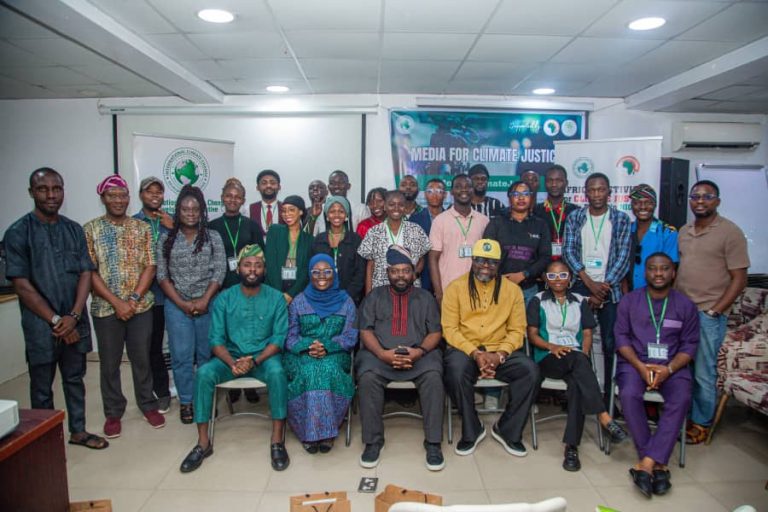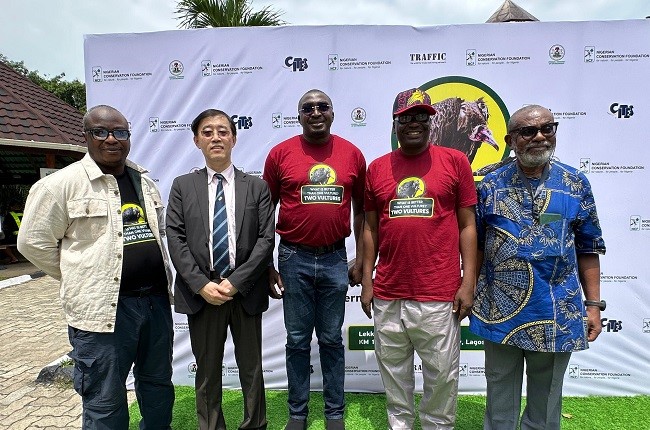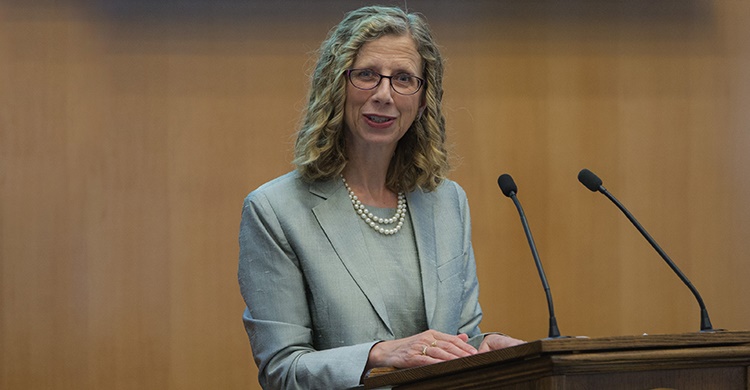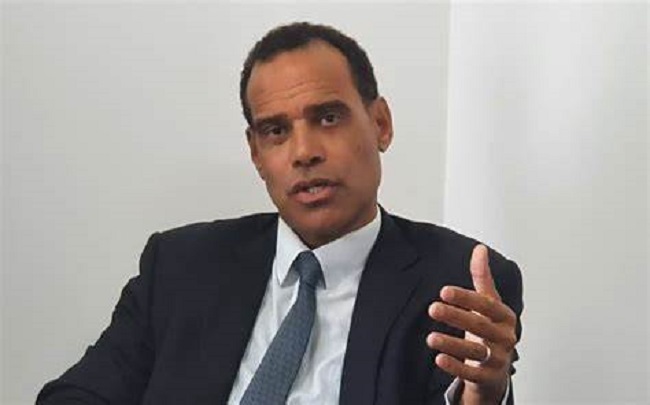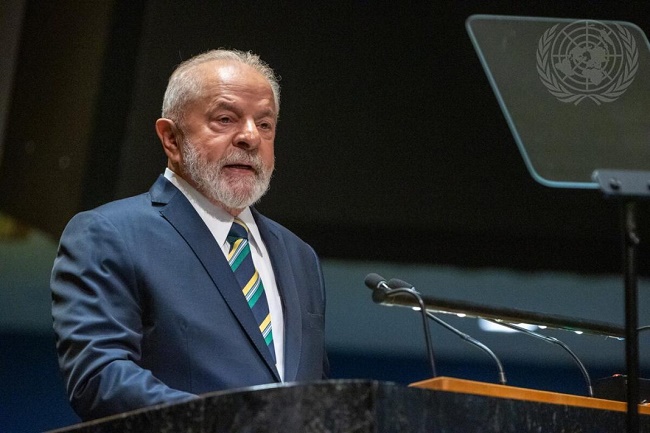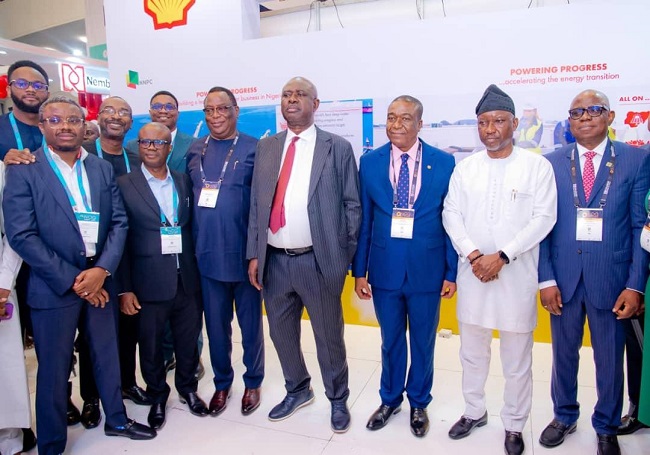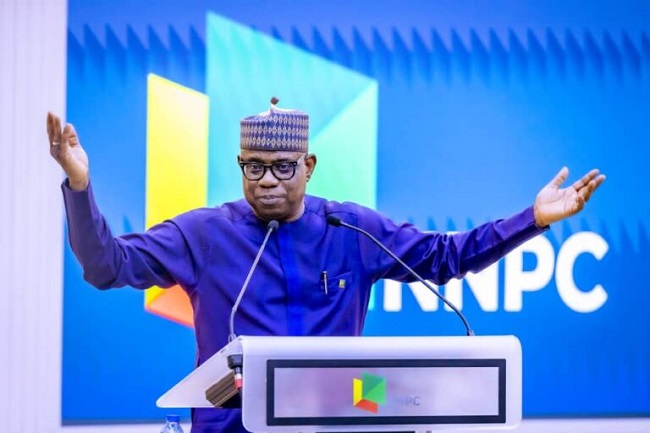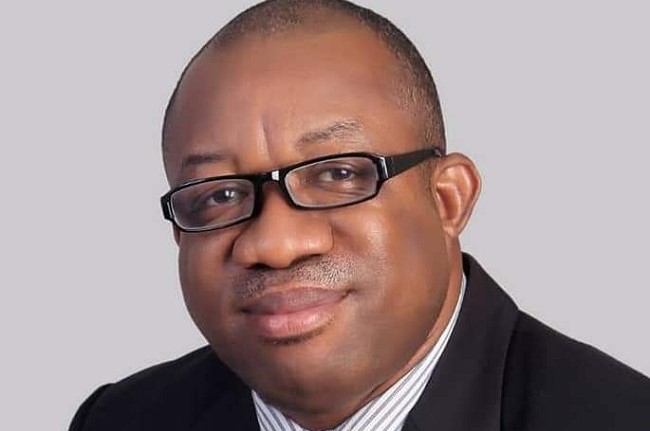The International Climate Change Development Initiative (ICCDI) on Wednesday, July 2, 2025, organised a two-day workshop tagged “Media for Climate Justice”, an event dedicated to raising awareness about climate-related issues and the role of media in shaping public discourse in Lagos.
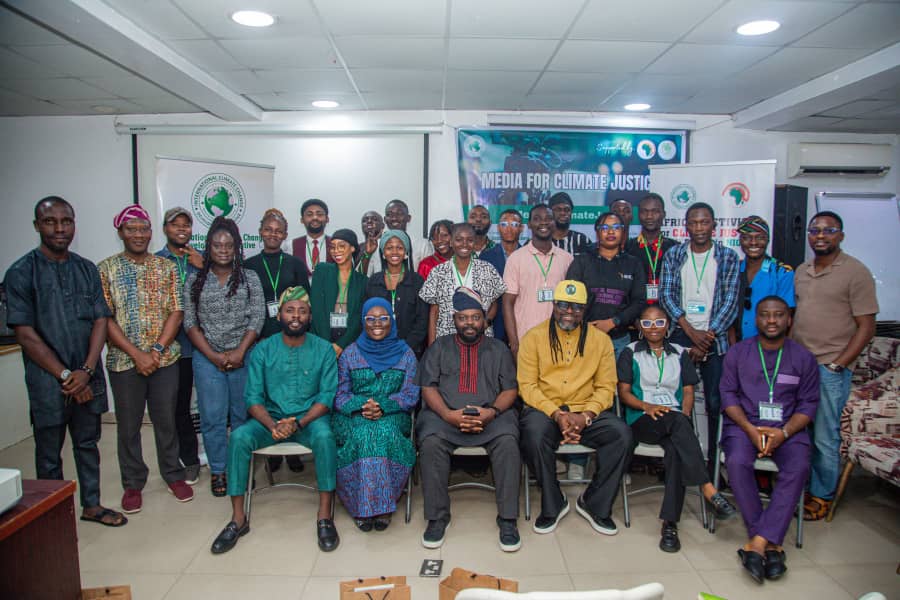
In his remarks, Olumide Idowu, Executive Director, ICCDI-Africa, said: “Climate justice is a framework that recognises the interconnectedness of climate change and social inequality. It emphasises that the impacts of climate change disproportionately affect marginalised and vulnerable communities, often those who have contributed the least to the problem.”
Idowu stressed that the main objectives of the event is to amplify the voices of residents of marginalised communities by ensuring their stories and perspectives are heard and also promote solutions through innovative and sustainable practices.
In his paper presentation titled “The Intersection of Climate Change, Social Justice, and the Media”, Sulaimon Arigbabu, the Executive Secretary, HEDA Resource Centre, noted that there is need for climate change information because it will help promote public engagement and advocacy leading to more informed decision making by shifting towards eco-friendly choices in daily activities.
Arigbabu said the media helps project ideas for solution by shaping how the people understands climate change, how they identify duty bearers and how they demand accountability.
He however admonished the participants of the workshop to prioritise scientific consensus over fringe views, make use of voices and visuals emanating from the communities as well as collaborating with other media platforms and NGOs.
In his remark, David Lanre Messan, the Chief Venture Builder, opined that there is need for climate advocates, media leaders, and changemakers to equip themselves with actionable frameworks and advanced strategies for storytelling that drives behavior change, policy momentum, and grassroots action across Africa.
Messan, in his paper presentation titled “Story Telling for Change: Crafting Compelling Climate Narratives and Effective Communication Strategies”, submitted that story telling in climate justice matters a lot because “data alone doesn’t move people; stories do, apart from this, narrative taps into emotion, fosters empathy, and inspires action”.
He said: “A well-crafted story turns abstract risks into personal stakes, so the role of a media professionals is to connect carbon budgets to everyday lives.”
The award winning story-teller urged participants to adopt the P.A.C.E. Method to build scalable stories. According to him with P.A.C.E. Method, writers should focus their narratives on Problem, Action, Consequence and Envision.
Other speakers that took turn to address participants at the workshop included Khadija M-Williams who spoke on “The Role of Media in Climate Advocacy” and Mayowa Adebote who delivered a speech on “Using Digital Media for Climate Activism”.
The two-day event continued on Thursday with upcoming journalists, activists, and community leaders in attendance.
By Ajibola Adedoye

